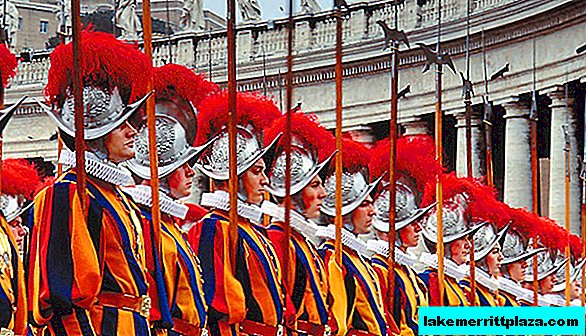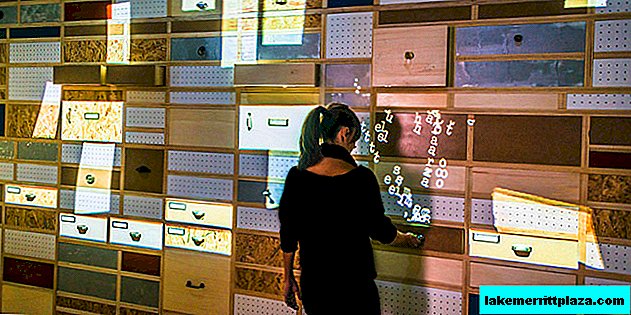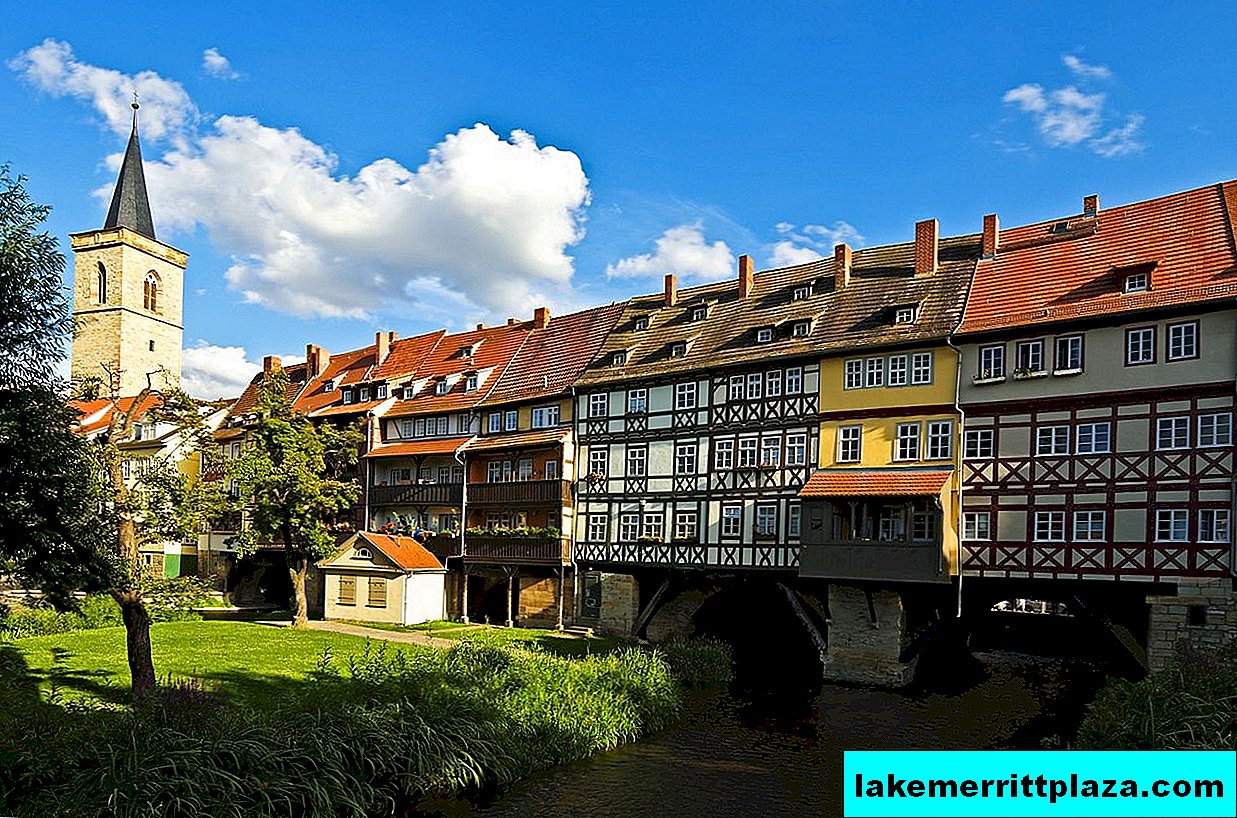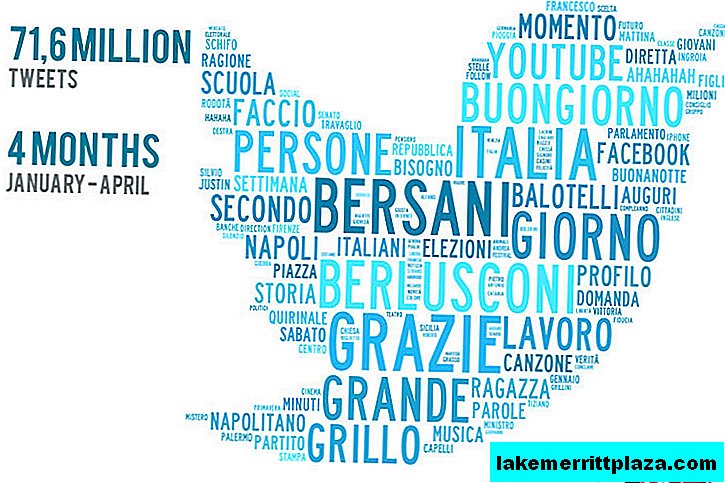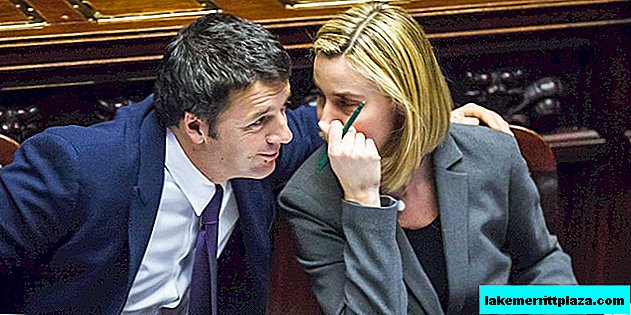In Germany, there are many places in the name of which there is a particle "bad" -
Baden-Baden, Wiesbaden, Bad Reichenhall, etc. etc. All these settlements - large and small - are resorts where water from local thermal springs is used to treat patients.

German sketches
German sketches. Part I
German sketches. Part II
German sketches
Part III. Bad berleburg
In Germany, there are many places in the name of which there is a particle "bad" -
Baden-Baden, Wiesbaden, Bad Reichenhall, etc. etc. All these settlements - large and small - are resorts where water from local thermal springs is used to treat patients. In Siegerland (I talked about this area of Westphalia in the first part of the report) there is also a local resort - a small town
Bad Berleburg. We went to meet him one day just before the end of our journey.
The road from Kreuztal (the city in which we lived) to Bad Berleburg is interesting in itself. The fact that Siegerland has beautiful nature, I have already said. In addition to contemplating nature, it is a pleasure to admire the houses that are unusual for our eyes in roadside towns and villages,

Village house
old churches

Old church
and even castles well preserved from the past.

Adolfsburg Castle
Traveling in Germany is easy and enjoyable in this regard. Behind the contemplation of picturesque views, time travels unnoticed on the road, and you do not have time to blink an eye when you arrive from point A to point B.
I will not focus on all the delights of relaxation and treatment in Bad Berleburg, just tell you about the city itself.
Since Bad Berleburg is a small town, it does not have any special and unusual sights that distinguish it from other similar cities. The most interesting thing in it is the well-preserved castle of the local princes with an adjacent park.

Castle in Bad Berleburg

Castle in Bad Berleburg
In addition to the usual mechanical clocks installed on one of the castle towers, there are others on the facade that have a very original look.

Strange device on the facade of the castle
Obviously, this is one of the earliest analogues of those modern watch brands, which, in addition to time, also show the date, day of the week, ambient temperature, atmospheric pressure, the ancient Mayan calendar and much more.
In the courtyard of the castle is a fountain with goldfish.

Fountain in the courtyard of the castle
Due to the early spring, the fountain has not yet been working.
If the castle looks more like a palace on the side of the facade, then on the outside it has preserved towers and separate sections of the fortress walls from earlier times.

One of the towers of the castle

Castle walls

Castle in Bad Berleburg
At the foot of the hill on which the castle stands, there is a park.

Castle park
The park has a wonderful view of the castle.

View of the castle from the park
There are several ponds in the park.

Castle park
One of them is quite large.

Pond in the castle park
In a large pond, fish go in huge shoals. It is no exaggeration to say that fish in a pond are simply teeming. And, notably, no one even thinks of catching it.

Fish in the pond
On the shores of the ponds various waterfowl walk around.

Ducks in the castle park

Geese on the shore of the pond
The reservoirs of Germany have one interesting feature. If there is no natural island on a pond or lake, such as this one,

Islet on the pond
then people build artificial islands for ducks, geese, swans and other birds living in this reservoir. About these.

Man-made island
This is done so that on the islets the birds can hide at night from predators living in the nearby forests. Mostly from foxes.
Some lawns in the park were already covered with flowers. And this is in mid-March.

Flowering lawn
Having passed the entire park to the end, we again went upstairs to the city. Slowly headed in the opposite direction - to the castle, where we had a car left. Very few people were met. The street was practically deserted. The locals, obviously, were at work, and vacationing holiday-makers - at the procedures.
In one of the courtyards between the houses they saw a woman and, with her permission, went into the courtyard to look at that part of the city, which is located at the foot of the hill from the side opposite the castle park.

Panorama of Bad Berleburg
One of the features inherent in houses and other buildings of the Siegerland region is clearly visible in the photo - tiled roofs are dark gray, and some are almost black. The fact is that in Siegerland tiles are made not of clay, but of stone. Here she performs a universal role. It can be used not only as a roofing material, but also as a facing tile. Some houses are covered with it, like scales, completely - from the ground to the ridge of the roof.

House typical of Siegerland
After viewing the city panorama from an improvised viewing platform, we thanked the hostess of the house and continued our route along the upper part of the city.

Square and square in the center of Bad Berleburg
A little before reaching the castle, in the square on the square they saw such a monument.

Monument in Bad Berleburg

Monument in Bad Berleburg
In view of the lack of knowledge of the German language, I did not quite understand what this monument was erected in honor of. Judging by these two commemorative plates installed on it

Fragment of the monument

Fragment of the monument
I venture to suggest that the memorial was erected in memory of residents of the city who died in wars, which, under the leadership of Kaiser Wilhelm I, Prussia led in order to establish its hegemony in the German world. The death years of the people who appear on the memorial plate suggest the Austro-Prussian and Franco-Prussian wars of the mid-60s and early 70s of the XIX century. Although, maybe I'm wrong.
On this, in fact, our acquaintance with Bad Berleburg ended.
Since this part of the report completes my narrative about the cities and towns of the German outback, we can draw some intermediate result.
Yes, the outback, unlike big cities, cannot boast of having major attractions. There are no huge cathedrals, magnificent palaces and museums rich in their collections. But here, outside the multicultural multi-ethnic megacities, the national characteristics of the country are more tangible. Paraphrasing A.S. Pushkin, we can say: "Here is the German spirit, here it smells of Germany." And the inhabitants of the outback are closer to nature and this is their advantage over the inhabitants of noisy and gassed human anthills, called large urban agglomerations.
Residents of small cities, even if the city does not have significant historical and cultural heritage, there is always a reason to be proud of their small homeland. Take, for example, the same Kreuztal. In the first part of the report, I mistakenly wrote that there are no large industrial enterprises in the city. Meanwhile, one of the largest breweries in Europe is located in Kreuztal. It produces beer very popular in Germany and abroad, the brand Krombacher (Krombacher). In Germany, this is the No. 1 brand in the premium segment. For the first time the town of Krombach, where they started brewing this beer, was mentioned in written sources in 1300, and Krombacher has been produced commercially since 1803. There are also divisions of such world-famous companies in Kreuztal as Siemens (Siemens) and ThyssenKrupp (ThyssenKrupp).
The concept of "outback" in Germany is very arbitrary. Of course, life here is quieter and more measured, but it’s very close to large cities - the distances here, after all, are not the same as in immense Russia.
I will definitely tell you about big, and not very big, ancient cities of this country. In the subsequent parts of the report, we will talk about Cologne, Koblenz, Bonn and Marburg. To be continued.
German sketches. Part iv
German sketches. Part v
German sketches. Part VI
German sketches. Part VII
German sketches. Part VIII
German sketches. Part IX
German sketches. Part x
How do I save on hotels?
Everything is very simple - look not only at the booking. I prefer the search engine RoomGuru. He is looking for discounts at the same time on Booking and on 70 other booking sites.

